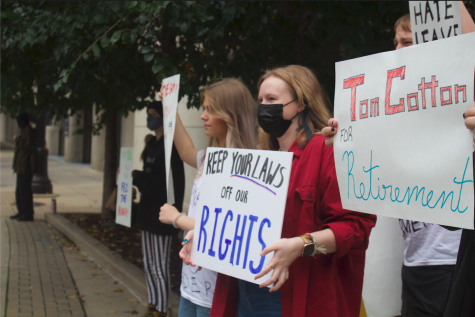Police perceptions of sexual assault researched
As awareness and action against sexual assault rises nationwide, social work professor Rachel Venema investigated the perception and attitudes of police officers in her article, “Police Officer Schema of Sexual Assault Reports: Real Rape, Ambiguous Cases, and False Reports,” published in November in the Journal of Interpersonal Violence.
In her research, which included interviews with ten officers in a midwestern, mid-sized city, she found that most victims of sexual assault don’t report the offense to the police, and those that do are not satisfied by treatment they receive from the justice system after the process.
Venema found that the perceived credibility of the victim was a core factor to police perceptions of the report as either legitimate, false, or ambiguous, and whether they continue investigation into the crime. If there are characteristics of the victim or incident that give them some pause, it makes it easier to write off the possibility that something really happened.
“Sometimes there are inconsistencies in a story, and a victim is perceived as changing their story or making it up, but the trauma of a sexual assault can actually affect their cognition and how they process information, so the story can come out jumbled,” she said.
Part of the problem is resources. Police departments sometimes have a lag time between when a patrol officer responds and a detective follows up. “If a potential victim senses that a police officer doesn’t believe them, it’s easy to say ‘forget it.’ It’s not that the police doesn’t report it, it’s that the person starts to question themselves and decide if it’s worth it or not to go through that process,” Venema said.
In addition, police departments vary on whether they offer specific training for detective and patrol officers on how to deal with sexual assault cases, something Venema wants to see changed.
“Some cities have instituted specialized patrols who are trained on how to deal with individuals with mental illness,” she said. “That’s something that I think could work with sexual assault cases too.”
Despite the negative reputation that police officers often receive in situations of sexual assault cases, Venema shared stories of detectives going above expectations to seek training on their own time to seek training on their own time to better understand the people they were working with.
Many officers didn’t believe they had any power or influence in the case because they approach each report objectively and the powers beyond them determine whether a case will be prosecuted.
In contrast, Venema stated: “I believe they have a lot of influence on whether a person reporting feels comfortable, whether they continue to pursue a criminal justice system response, all of which have consequences for someone’s healing process.”
Contrary to common public perception, most sexual assaults do not include extensive physical injury beyond the assault itself, and most are perpetrated by someone the victim knows. In Venema’s research, cases involving extreme injury were more likely to be perceived as legitimate.
The idea of a typical sexual assault as a violent stranger, “is a myth, but we as a culture buy into that myth. There’s a much bigger issue going on though,” Professor Venema asserted.
“There are things within our society that socialize violence, particularly violence among boys and men. It’s not only encouraged to look at women as objects, but to view sexual relationships as an object to be had rather than an expression of a healthy relationship where people are free to say yes or no,” she added.
She believes the best solution to the issue is prevention:
“Education happens really early, and already, in elementary school, there should be more emphasis on education, talking about communication skills, boundaries and how to respect someone else.”
There is reason for hope, however.
“There’s been a lot more programming and education around the issue in the last few years, and with an openness to addressing these issues and resources to support that, I think things will continue to improve.”







